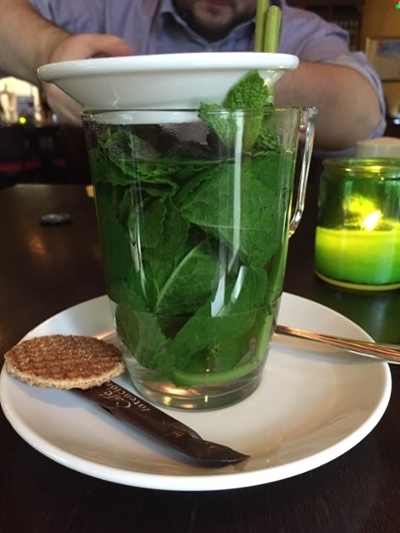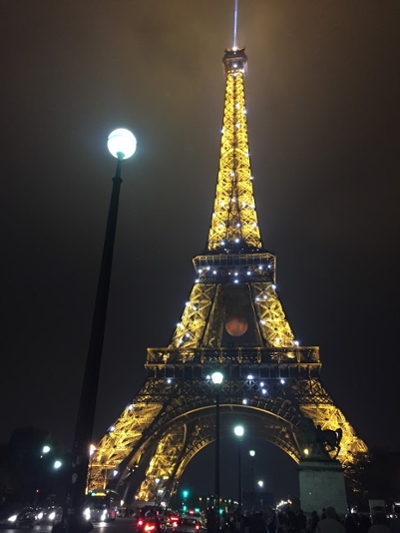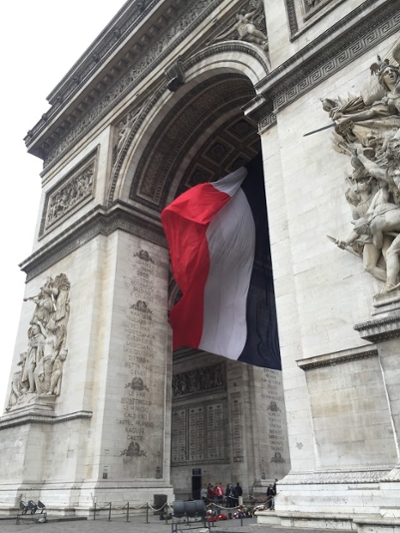Week Three: Research and Travel
This past week was already my third week of work in The Hague. I continued working on the oligarchy project for most of the week. First, I finished making the table that I will be using to organize the information I gather about constitutional provisions relating to "oligarchic power." After I finished, Elliot and I discussed how best to approach the project from there on. We decided to do a sample of 10 constitutions to begin with, choosing either "full" or "flawed" democracies from the Economist's 2015 Democracy Index. We chose the Economist's index because it serves as a relatively accurate measure of what countries are "democratic" for the purposes of our study. I then spent the next two days reading through about four constitutions, looking for provisions such as "economic and social councils" (which can be found in the Mexican constitution), state funding of political parties, and bans on using political office to profit commercially. I was surprised to see how many of these provisions exist in newer constitutions compared to older ones. However, further research is needed to determine if the presence of such restrictions in those constitutions translates to "less oligarchic" democracy in practice, or if the provisions were meant to serve as stepping points for future change. Perhaps the provisions were written to respond to current problems with oligarchic power, for example.
On Thursday, I accompanied Elliot to Tilburg University, which is about a hour and a half train ride from The Hague. We visited the law school at the University and Elliot gave a lecture (in English) to a few law professors and students about our project. It felt a lot like one of the lunch discussions that often occur at William & Mary, although the food (baguettes and various kinds of cheese) gave away the European influence present in the room. It was both helpful and interesting to hear everyone's comments on the project. We will likely incorporate some of those comments into our approach going forward. For example, the Dutch constitution does not call for mandatory referendums. Instead, the government is free to take referendum results under advisement and then to choose its own path to take. Elliot and I talked about looking for provisions in other constitutions that require the government to follow the results of a national referendum. After the lecture, Elliot took me for a "celebratory beer" before we took the train back to The Hague. It reminded me of the slower pace of the European lifestyle, something I always have a little trouble adjusting to since I can classify myself as a "go go go" American. I'm glad that I have been encouraged to take the time to relax and "enjoy the view," as you might say, while I've been living here.
My boss graciously let me have Friday off this week so that I could take the three hour train to Paris to meet my parents. As it was their first time in Paris (and Europe) we spent the weekend visiting the Eiffel Tour, the Notre Dame, and other famous Parisian attractions. Unfortunately, due to the recent flooding of parts of the city (six weeks worth of rain fell in three days this week) we could not see everything. The Louvre, for example, was closed after artwork had to be moved to keep it from being damaged by the water. Still, it was fun to be back in Paris and I'm glad my parents were able to see it for the first time. I was glad to see that my 9 years of French held up pretty well after a few years away from lessons too!
This week, I will continue researching and reviewing constitutions until I have a set of ten for Elliot and I to analyze further. At night, I will also be able to see my parents, as they are staying in The Hague for a few days and spending some time visiting a few other Dutch cities.

One of my favorite aspects of Dutch culture so far is the way that hot drinks are served. Any kind of hot drink is paired with a cookie, often a stroopwaffle or a speculoos cookie (a kind of spicy ginger cookie). As seen above, mint tea is made solely from mint leaves and hot water. The drink is both delicious and visually appealing.

After dark, the Eiffel Tower is lit with twinkling lights at the top of each hour.

The Arc de Triomphe